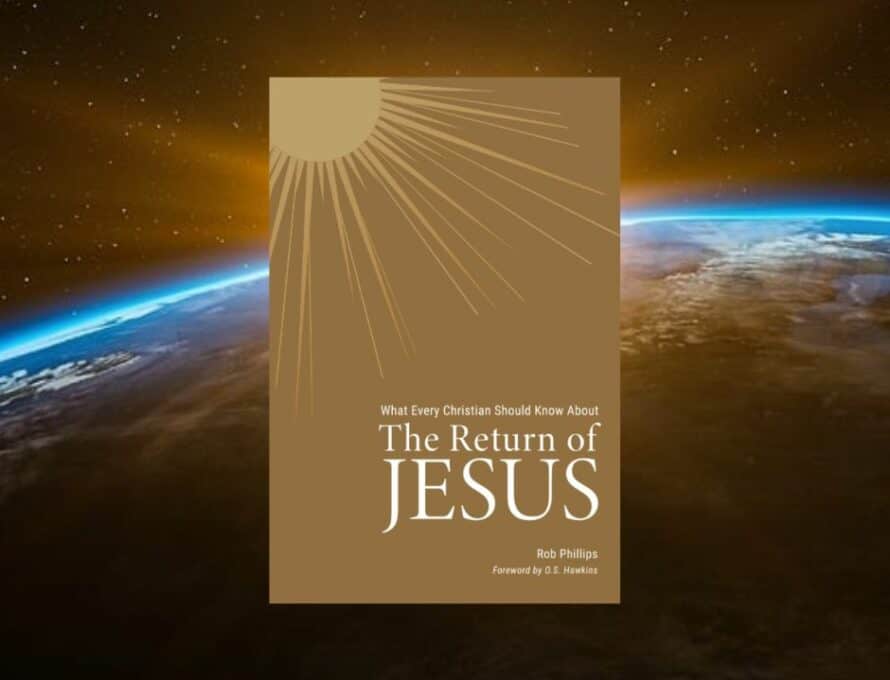This is another in a series of excerpts from What Every Christian Should Know About the Return of Jesus, released by High Street Press and available at Amazon.com.
How could “the worst” of sinners, suffering confinement in Rome, write a letter to a distant church, expressing gratitude and joy? Paul’s letter to the Philippians is a remarkable epistle that proclaims the joys of knowing Christ, the rewards of persevering in the faith, and the secret of contentment.
Paul writes to thank the Philippians for their financial support. He assures them that their messenger, Epaphroditus, who delivered the church’s gift to Paul, has recovered from a grave illness. And he desires to maintain his close relationship with fellow believers from whom he has been isolated.
While Paul cannot assure the Philippians of his release from prison, or promise them relief from their own sufferings for the cause of Christ, he writes jubilantly with the full assurance of Christ’s return and believers’ future glory.
“Our citizenship is in heaven,” Paul writes, “and we eagerly wait for a Savior from there, the Lord Jesus Christ” (Phil. 3:20). Paul does not take his Roman citizenship lightly. In fact, he leverages his citizenship to appeal to Caesar, whose government keeps him in chains (Acts 25:10-11). But he knows there is a more enduring citizenship, one in which the king already has heard Paul’s appeal, acquitted him, and prepared a place for him at the royal banquet table.
One day, that very king returns to sit on the throne of David and set things right. Until that time, nothing separates Paul from the love of God. Even in death, Paul passes immediately into God’s presence to await the king’s return in glory.
Paul is one of many eyewitnesses who write about Christ’s return. From Acts 17 through Titus 2, he proclaims its certainty, awaits its glory, warns of its vengeance, and urges followers of Jesus to live in the light of its impending reality. In this column, we focus on his letter to the Philippians.
Paul points to the return of Jesus three times in this letter. Twice, he refers to “the day of Christ” or “the day of Christ Jesus.” In the third reference, Paul shares the hope of our future resurrection when our Savior returns from heaven.
Philippians 1:6 – “I am sure of this, that he who started a good work in you will carry it on to completion until the day of Christ Jesus.”
Paul adapts Old Testament references about “the day of the Lord” to his first-century audience. In so doing, he affirms the deity of Jesus, calling his return “the day of Christ Jesus.”
The apostle expresses his confidence that the Philippians are going to persevere to the end. He bases this on what he has experienced so far: they have been partners in the gospel from the beginning (Phil. 1:5), and they are partners in Paul’s imprisonment, and in the defense and confirmation of the gospel (v. 7).
Philippians 1:9-10 – “And I pray this: that your love will keep on growing in knowledge and every kind of discernment, so that you may approve the things that are superior and may be pure and blameless in the day of Christ ….”
Building on his great affection for the Philippians in verse 8, Paul now shares his desire for their love to keep growing, evidenced in knowledge and godly discernment that result in purity and blamelessness when Jesus returns.
Philippians 3:20-21 – “Our citizenship is in heaven, and we eagerly wait for a Savior from there, the Lord Jesus Christ. He will transform the body of our humble condition into the likeness of his glorious body, by the power that enables him to subject everything to himself.”
Paul rallies the Philippians with the remarkable truth that their citizenship transcends Philippi, and even the Roman Empire. They are but pilgrims on earth. Their names are written in heaven (Luke 10:20). Christ is preparing a place for them there (John 14:1-3). As a result, the Philippians may look beyond the hardships of this life and eagerly anticipate the day when Christ returns.
As the firstfruits of those raised from the dead (1 Cor. 15:20), the resurrected Jesus is our personal guarantee of glorification – the completed work of redemption in which we are given immortal bodies like Christ’s resurrected body.
What great hope for those struggling through this life. We should always look up, for Jesus assures us that our redemption draws near (Luke 21:28).
Next: The Thessalonians and Christ’s return

